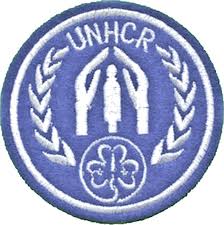|
|
The Sankara Affair: The United Nations judges admissible the CIJS complaint against Burkina Faso (June 8, 2003)
|

|
The Sankara Affair:
The United Nations judges admissible the CIJS complaint against Burkina Faso
Mariam Sankara et al. are represented by Counsels, forming the
Collectif Juridique International Justice Pour Sankara
Me Jean Abessolo (France)
Me Bibi Barnabe (France)
Me Karim Bensakina
Me May Chiu (Canada)
Cabinet Sankara-Diallo (Burkina Faso)
Me Prosper Farama (Burkina Faso)
Me Milton James Fernandes (Canada)
Me Devotsou Kofimessa (Togo)
Me Sherley Morin (Canada)
Me Dieudonné Nkounkou (France)
Me Ferdinand Djammen Nzeppa (France)
Me John Philpot (Canada)
Me Nicole Bobillot-Prévost (France)
Me Charles Roach (Canada)
Me Aissata Tall Sall (Sénégal)
Me William Sloan (Canada)
Me Vincent Valaï (Canada)
Issued On June 8, 2003 comments on the Observations of State Party, Burkina Faso on the Admissiblility of Communication 1159/2003 (Sankara et al. v. Burkina Faso) submitted under the Optional Protocol to the International Covenant on Civil and Political Rights in which they requested
THE UNITED NATION’S HUMAN RIGHTS COMMITTEE, ESTABLISHED UNDER ARTICLE 28 OF THE INTERNATIONAL COVENANT ON CIVIL AND POLITICAL RIGHTS TO:
AFFIRM the competence of the Human Rights Committee to make determinations on the admissibility of Communication 1159/2003;
DECLARE Communication 1159/2003 admissible having ascertained, as required under article 5, paragraph 2 (a) of the Optional Protocol, that the same matter is not being examined under another procedure of international investigation or settlement;
DECLARE Communication 1159/2003 wholly admissible as regards all four victims, considering that the facts presented give rise to matters under articles 2(1), 6, 7, 14(1), 16, 17, 23, and 26 of the Covenant in conjunction with article 2, paragraphs 3(a) and 3(b) as there have been State acts and willful omissions, and court decisions which constitute ongoing violations in themselves of Covenant-protected rights after the date of entry into force of the Optional Protocol for Burkina Faso on 4 April 1999, and until this present day;
AND
TAKE NOTE FOR ITS VIEWS ON THE MERITS OF Communication 1159/2003 of the judicial admission contained in paragraph 1.1.3. entitled “Les événements du 15 octobre 1987 et la mort de Thomas Sankara” of the “Observations du Gouvernement du Burkina Faso sur la recevabilité de la Communication No. 1159/2003” by which Burkina Faso has admitted having specific knowledge that Thomas Sankara did not die of natural causes on 15 October 1987, and that Burkina Faso has failed to initiate any judicial criminal proceedings, either civil or military, in relation to the death of Thomas Sankara, and that Burkina Faso has also failed to fully resolve the status of Thomas Sankara, despite specific knowledge of the falsity of Thomas Sankara’s death certificate both before and after the entry into force of the Optional Protocol for Burkina Faso on 4 April 1999, and until this present day.
For the Collectif Juridique International Justice Pour Sankara
On June 8, 2003
Montreal, April 12, 2004 – During its 80th session in New York, the United Nations Human Rights Committee judged admissible the communication submitted on October 12, 2002, against Burkina Faso, by the Campagne Internationale Justice pour Sankara on behalf of former President Thomas Sankara, his widow and children.
The UN Human Rights Committee invited Burkina Faso to submit within six months a written explanation or declaration providing clarifications on the affair. The U.N. Human Rights Committee has requested that the parties keep the decision on admissibility of Communication No1159/2003 confidential.
The communication was submitted in 2002 to the UN Human Rights Committee by the
Collectif Juridique International Justice pour Sankara stating violations of certain articles of the International Covenant on Civil and Political Rights following the assassination of Thomas Sankara on October 15, 1987.
Legal proceedings in this case began in 1997, when Thomas Sankara’s widow, Mariam Sankara, submitted a complaint against X in Burkina Faso for assassination. It was only when the CIJS had exhausted all internal recourses that it submitted a complaint to the UN Human Rights committee.
The Collectif Juridique International Justice pour Sankara is composed of 18 lawyers from Canada, Europe and Africa* committed to human rights and the fight against impunity.
Thomas Sankara, a panafricanist, progressive and internationalist statesman, was assassinated along with a dozen of his comrades on October 15, 1987 by members of the current regime in Burkina. To this day, his death certificate states that he died of natural causes.
* Me Jean Abessolo (France), Me Bibi Barnabe (France), Me Karim Bensakina (France), Me May Chiu (Canada), Cabinet Sankara-Diallo (Burkina Faso), Me Prosper Farama (Burkina Faso), Me Milton James Fernandes (Canada), Me Devotsou Kofimessa (Togo), Me Sherley Morin (Canada), Me Dieudonné Nkounkou (France),
Me Ferdinand Djammen Nzeppa (France), Me John Philpot (Canada), Me Nicole Bobillot-Prévost (France), Me Charles Roach (Canada), Me Aissata Tall Sall (Sénégal), Me William Sloan (Canada), Me Vincent Valaï (Canada)
GRILA Group for Research and Initiative fo the Liberation of Africa
admin@grila.org
514 499 3418
-30-
| |
|
|
|
|
|
|
|